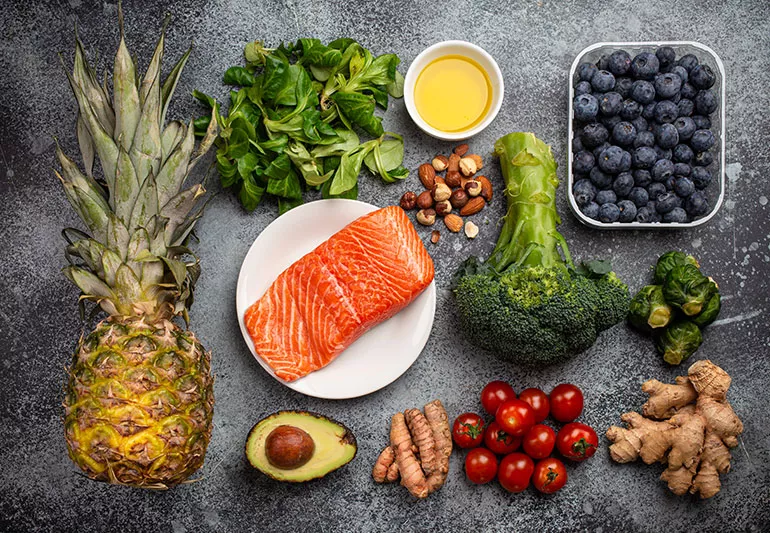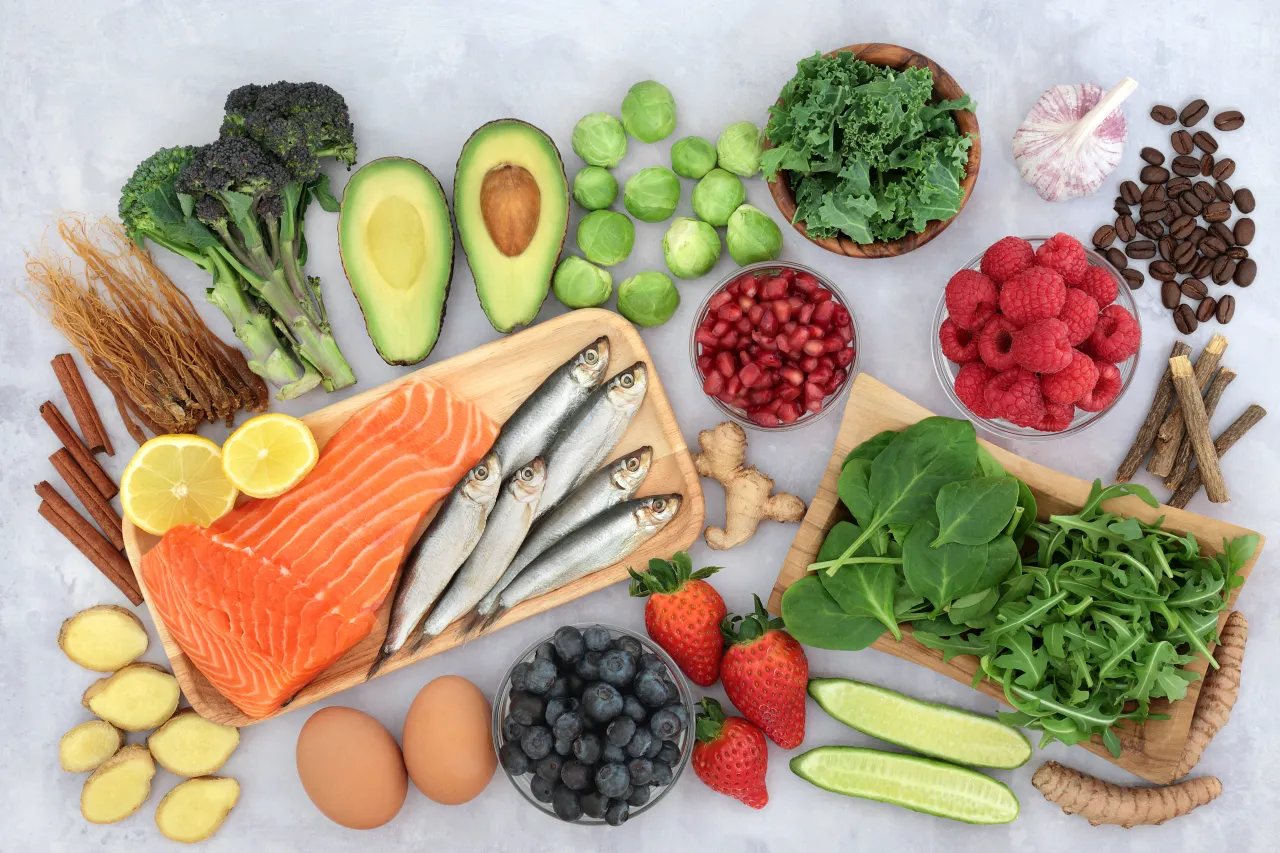Physical Address
304 North Cardinal St.
Dorchester Center, MA 02124

Discover the best anti-inflammatory foods to include in your 2024 diet. Learn how these foods can help reduce inflammation and improve your overall health.

Inflammation is a natural response of our body’s immune system, but chronic inflammation can lead to several health issues, including arthritis, heart disease, and diabetes. Thankfully, you can combat inflammation through your diet. By incorporating anti-inflammatory foods, you can support your body’s ability to fight off inflammation naturally. So, what are these foods, and how can you integrate them into your daily meals? Let’s dive into the world of anti-inflammatory nutrition.
Inflammation is your body’s way of protecting itself from harm. When your body detects a threat, like an infection or injury, it triggers an inflammatory response. However, when inflammation persists, it can become chronic, leading to various health problems. This is where diet comes into play. By consuming foods rich in anti-inflammatory properties, you can help manage and reduce chronic inflammation.
omega-3 fatty acids, salmon, mackerel, sardines
Fatty fish like salmon, mackerel, and sardines are packed with omega-3 fatty acids, which are known to reduce inflammation. Omega-3s work by decreasing the production of inflammatory molecules and substances in the body.
spinach, kale, antioxidants
Leafy greens such as spinach and kale are loaded with antioxidants and polyphenols, which are natural compounds that reduce inflammation. These greens are also rich in vitamins A, C, and K, adding to their anti-inflammatory power.
blueberries, strawberries, anthocyanins
Berries, especially blueberries and strawberries, are rich in antioxidants known as anthocyanins. These compounds have potent anti-inflammatory effects and can help lower your risk of chronic diseases.
almonds, walnuts, flaxseeds, chia seeds
Nuts and seeds, including almonds, walnuts, flaxseeds, and chia seeds, are excellent sources of healthy fats, protein, and fiber. They also contain antioxidants that can help fight inflammation.
extra virgin olive oil, oleocanthal
Extra virgin olive oil is a staple in the Mediterranean diet, known for its numerous health benefits. It contains oleocanthal, a compound with anti-inflammatory properties similar to ibuprofen.
curcumin, anti-inflammatory spice
Turmeric is a vibrant yellow spice widely used in Indian cuisine. Its active ingredient, curcumin, is a powerful anti-inflammatory compound that can help reduce inflammation in the body.
lycopene, vitamin C
Tomatoes are an excellent source of lycopene and vitamin C, both of which have anti-inflammatory properties. Cooking tomatoes increases the availability of lycopene, making them even more beneficial.
catechins, anti-inflammatory beverage
Green tea is rich in catechins, a type of antioxidant with anti-inflammatory effects. Regular consumption of green tea is associated with a lower risk of heart disease and certain cancers.
While incorporating these foods into your diet can offer numerous health benefits, it’s essential to remember that they should be part of a balanced diet. Consult with a healthcare professional, especially if you have existing health conditions or are on medication, to ensure these foods are appropriate for you.
Incorporating anti-inflammatory foods into your diet can significantly impact your overall health and well-being. By making these nutritious choices, you can help reduce inflammation in your body and lower the risk of chronic diseases. So, why not start today? Explore these foods and see how they can transform your diet and health.